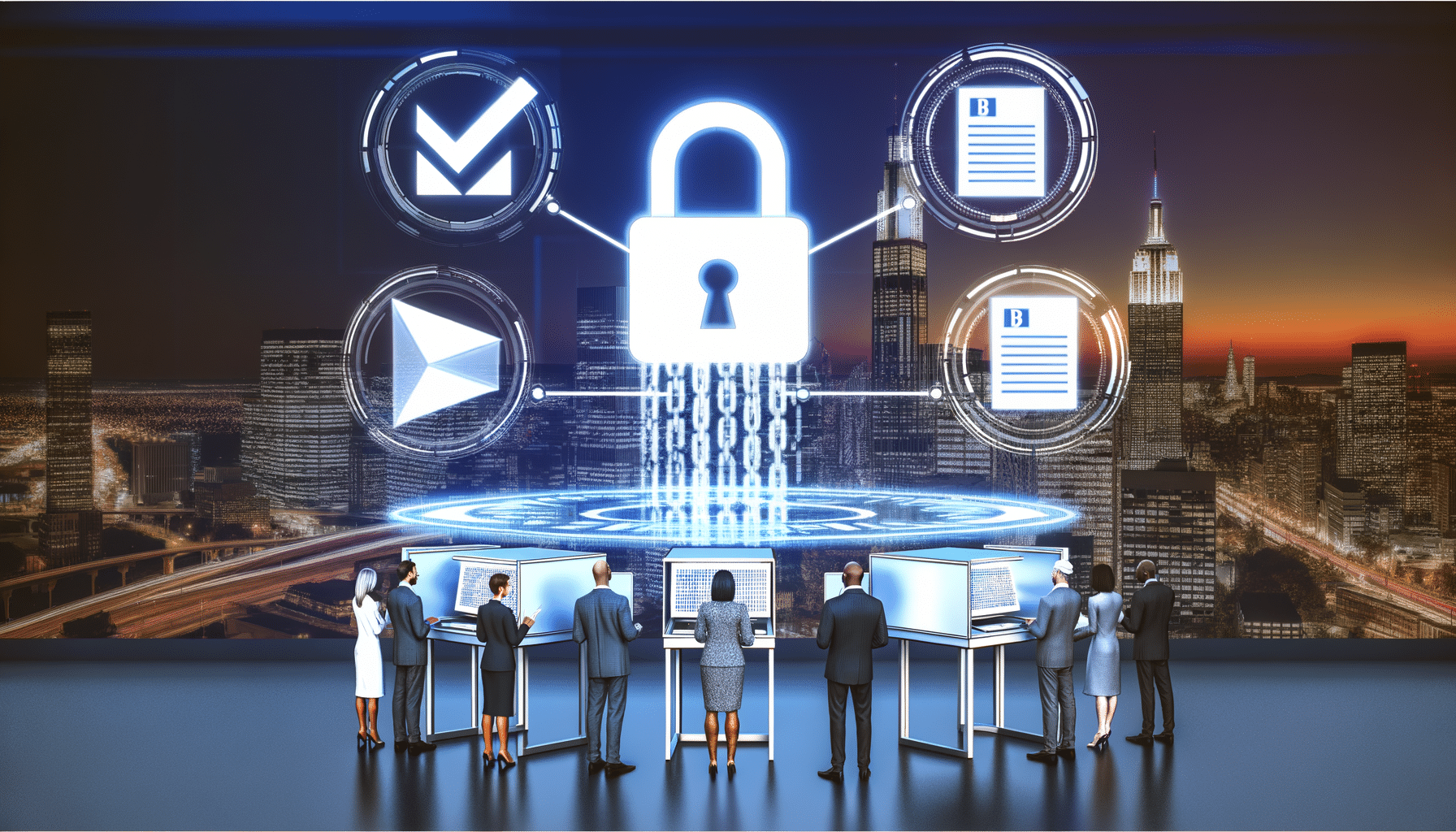Revolutionizing Election Integrity: How Blockchain Secures Digital Voting Records
In the rapidly evolving age of technology, the shift towards digital voting has become an inevitable part of modern elections. With this shift, ensuring election security has become a paramount concern for governments worldwide. Here, the importance of blockchain technology in safeguarding election integrity comes into focus, offering a promising solution to some of these challenges.
Understanding the Role of Blockchain in Election Security
Blockchain is fundamentally a decentralized and immutable digital ledger. By design, it secures transactions through cryptographic techniques, ensuring the integrity and authenticity of information. So, how does this translate to digital voting and election security? The answer lies in blockchain’s ability to create transparent, tamper-proof records, a critical requirement for trustworthy elections.
When I first delved into blockchain’s potential to transform various sectors, including government operations, I realized its power to enhance not just security but overall trust in institutional processes. Digital voting systems are no exception. Blockchain can offer unprecedented security and transparency, tackling issues of voter fraud, unauthorized record alterations, and vote tallying inaccuracies.
Blockchain: A New Era for Transparent Voting
How exactly can blockchain revolutionize the voting process? Here are some compelling facets that showcase its potential:
- Immutable Records: Once recorded on a blockchain, digital voting records cannot be altered, providing a clear, undeniable trail of verified transactions. This feature is pivotal for managing vote counts and ensuring that each vote is counted as intended.
- Decentralization: Blockchain’s absence of a single control point minimizes the risk of systemic manipulation, making it markedly more secure than traditional centralized systems.
- Auditability: Blockchain allows for real-time auditing of voting records without compromising voter privacy, ensuring transparency and facilitating post-election audits.
These characteristics of blockchain not only bolster election security but also align with the broader principle of democratizing data access while maintaining privacy.
Key Benefits for Election Stakeholders
Adopting blockchain in digital voting offers several benefits:
- Reduced Fraud Risks: With the high-security cryptographic framework in which blockchain operates, falsifying or tampering with votes becomes significantly challenging for malicious actors.
- Enhanced Voter Trust: When voters are assured of the secure handling of their digital votes, trust in the electoral process naturally increases, bolstering democratic participation.
- Efficient Electoral Management: The automation features of blockchain can streamline vote counting and verification processes, potentially reducing human error and expediting results.
Given these advantages, the leap towards blockchain is not only necessary but vital for contemporary election systems — ensuring processes are agile enough to withstand current and future challenges.
The Road Ahead: Blockchain’s Adoption in Real-World Elections
Government agencies are increasingly exploring pilot projects to integrate blockchain into voting systems. Estonia and Switzerland, known for their digital innovations, are at the forefront of experimenting with blockchain solutions, lending invaluable insights to this technological transition.
As I work with various platforms to integrate blockchain solutions like RecordsKeeper.AI, the consistent takeaway is the importance of collaboration between tech innovators and government policymakers. This is crucial to shaping standards for security, privacy, and interoperability in blockchain-based voting systems.
Challenges to Consider
While blockchain presents exciting opportunities, it’s not without hurdles. Challenges include integrating with existing legacy systems, ensuring equitable voter accessibility, and addressing scalability concerns in densely populated regions.
Engaging in open dialogues across the legal, technical, and governmental spheres is essential to craft policies that address these challenges effectively. Moreover, continuous investment in research and development will be key to refining blockchain solutions for voting.
Embracing Blockchain for the Future of Elections
The incorporation of blockchain in digital voting is a critical frontier for election integrity. It’s about harnessing technology not just for convenience but for enhancing democracy itself. For policymakers, tech entrepreneurs, and voters, this advancement represents a collective step forward.
I encourage further exploration into blockchain’s potential, inviting you to delve deeper into these topics, leveraging RecordsKeeper.AI’s resources and technology to understand the profound implications blockchain holds for secure and transparent elections.
As we navigate through these transformative times, let us embrace the power of blockchain to foster trust and security in our democratic processes. Stay tuned with me, Toshendra Sharma, for continued insights and the journeys ahead as we pioneer innovations in record management and beyond.
